 The following amazing interview appeared in last weeks Sha’ah Tovah Magazine, and was given exclusively to YWN:
The following amazing interview appeared in last weeks Sha’ah Tovah Magazine, and was given exclusively to YWN:
Hagaon R’ Yitzchak Grodzinsky shlit”a, son of the mashgiach of Slabodka, Maran R’ Avraham Grodzinsky Hy”d, kept his recollections of the horrors he witnessed during the war years locked securely within him – until just a few short weeks ago. Even his own family was unaware of the extent of his experiences and suffering. Before Pesach, when Sha’ah Tovah interviewed R’ Shmuel Deitz, one of the last survivors of the Slabodka ghetto, the floodgates suddenly, unexpectedly opened, and a flood of memories emerged. A chronicle of incredible faith and resilience in the face of unspeakable evil is here presented for the first time – a lesson from the past, and a legacy for the future.
Hagoan R’ Yitzchak Grodzinsky Shlita is today rosh kollel Toras Avraham in Bnei Brak, which is named for his father Hy”d. During our interview with R’ Shmuel Deitz, he sits silently, listening and absorbing, barely interrupting whether to confirm or to comment. Yes, he is silent – but one can almost sense the storm churning within him, the powerful emotions the words he hears evoke in him. Every so often, a stray tear escapes his eyes. His silence is heavy – the silence before the storm, of the gathering clouds, ready and waiting to burst.
And then, suddenly, the floodgates open and he begins to talk, quietly at first, and then with more emotion, yet always with carefully chosen and measured words. He describes an
extraordinary saga of emunah, an exalted and wholehearted emunah, a faith that begins at the very point where intellect reaches its limit.
Before he entered the room, the rebbetzin told us that her husband has never been in the habit of speaking about those painful memories, and rarely mentions the occasions when his
siblings and father were murdered. But she admits that; “Sometimes, I hear him crying softly at night, and then he might tell me something like, ‘I will never forget my uncle, Hagaon R’ Shabsai Vornikovsky Hy”d. He was pure gold…’”
A towering figure, Harav Vornikovsky was the mashgiach of Lomza and R’ Avraham Grodzinsky’s brother-in-law, as was Hagaon R’ Yaakov Kaminetsky ztz”l. R’ Shabsai was one of the
first to be murdered in Vilna by the Nazis; his entire family eventually met the same fate; not one of the ten survived. The children had grown up together with R’ Yitzchak.
On one occasion, seeing how overwrought R’ Yitzchak was at the memories which still tortured him, the rebbetzin suggested that in the next edition of his father’s Torah chiddushim, he should mention the names of his cousins and their parents. This he did – after which she no longer heard his nighttime sighs.
We had come to R’ Yitzchak’s Bnei Brak home to meet there with R’ Shmuel Deitz and hear his recollections of the war years. R’ Shmuel’s own memories could fill a book, and we sat riveted as he described life in Slabodka during the war and the spiritual heroism exhibited by the great figures he was privileged to have known, including R’ Yitzchak’s father. R’ Shmuel was also one of those who saw Hagaon R’ Elchanan Wasserman Hy”d being led to his death at the infamous Fort Nine. But once R’ Yitzchak began to speak, all attention turned to him, as he testified to extraordinary mesirus nefesh and the heights which people of flesh and blood can attain.
HE ACQUIRED MUSSAR WITH HIS BLOOD
R’ Avraham Grodzinsky was renowned as one of the leading baalei mussar in pre-war Lithuania, and one of the foremost disciples of the Alter of Slabodka. After the war, his sons-in-law became distinguished figures of Torah Jewry in Eretz Yisrael and beyond: Hagaon R’ Chaim Kreiswirth ztz”l, the mashgiach Harav Shlomo Wolbe ztz”l and Hagaon R’ Baruch Rosenberg ztz”l, Rosh Yeshivas Slabodka.
R’ Avraham was born in Warsaw (in 5642) although the family originated in Lithuania. It was his grandfather, R’ Zev, who was the first to settle in Warsaw, and he soon became one of its most prominent figures. He was responsible for the eiruv around the city, and on many occasions he risked his life to check it before Shabbos. During the siege around the city during the First World War, he made his rounds as usual, and when soldiers noticed him methodically progressing around the city, they suspected him of being a spy and arrested him. Eventually, with great effort, the roshei kehillah managed to extricate him…
His son, R’ Yitzchak (Itche), founded a yeshivah in Warsaw before the war, regarding which the Chofetz Chaim said, “R’ Itche salvaged Torah study in Warsaw.” But he was equally involved in chessed; his home was open to every person in need and dozens dined at his table even on weekdays. If he wasn’t busy with marrying off a poor bride, he would be raising money for some other worthy cause. His frequent sighs always denoted another unfortunate person who needed his help.
The poor shared the same table with famous Torah personalities who came to Warsaw, including the Chofetz Chaim, and it was in this amazing home that R’ Avraham Grodzinsky grew up. At the age of seventeen, he went to learn under the Alter of Slabodka, who later stated, “For him alone, all my toil [in life] was worthwhile.” R’ Avraham numbered among the twelve talmidim who went to Chevron to set up a yeshivah there, but he later returned to Slabodka, whereupon he was appointed mashgiach. The Alter was still rosh yeshivah in those days, but whenever he was absent, for fundraising purposes, Harav Isaac Sher took his place at the helm. The latter escaped R’ Avraham’s fate by fleeing to Switzerland, and from
there he went on to Eretz Yisrael where he reestablished Yeshivas Slabodka in Bnei Brak.
It was at this point in his life that R’ Avraham began working intensively upon his character. R’ Yitzchak writes in his introduction to Toras Avraham how for two full years his father dedicated himself to presenting a pleasant expression to those all around him until it became ingrained in his personality. Even in the gloomiest days of the ghetto period, he still retained this trait. And this was just one aspect of his multi-faceted personality, which he formed and reformed with determination, such that the Alter of Slabodka testified that: “He acquired mussar in his very blood, rending chunks from his body and breaking all his [negative] tendencies. He broke himself totally. But there was no sound of the breakage, no outward sign of the tremendous effort; his self improvement did not interfere at all with his profound diligence in study.”
With the departure of Harav Isaac Sher, R’ Avraham was left alone to head the yeshivah’s remnants in Kovno, since the Alter had long since departed for Eretz Yisrael to head the yeshivah in Chevron, where he had been niftar in 1927. With the outbreak of war, the Russians invaded Lithuania and confiscated the yeshivah building, for use as a social hall. R’ Avraham interpreted this as a harsh sign from Heaven that they had not dedicated themselves fully enough to their learning, but rather had “entertained themselves in the yeshivah,
as it were, which is why it became an entertainment hall.” He now preached austerity and being satisfied with a bare minimum. After the Germans invaded, the ghetto was established and the yeshivah students were mobilized for hard labor, including R’ Avraham and his young son.
This did not stop his mind from delving into Torah at all times. He gave shmuessen to the students on Shabbos evenings, which were transcribed after Shabbos, but the notebooks, hidden for safekeeping, were never located after the war.
THE COMMITTEE OF TEN TZADDIKIM
“Throughout the dark Holocaust, my father’s spirit never wavered,” wrote R’ Yitzchak in his introduction to Toras Chaim. Hagaon R’ Mordechai Zukerman, another Slabodka survivor, testified, “He was always fresh and vigorous even during the blackest of times and his face shone. One particularly harsh aktion in the ghetto struck terror into everyone’s heart and plunged them in depression. Nevertheless, that Shabbos night, R’ Avraham reminded a talmid that one must greet Shabbos with joy.”
Hunger was rampant. R’ Yitzchak wrote further, “When we succeeded in obtaining some food, my father would sit very calmly and eat slowly, exhibiting no sign that he hadn’t had what to eat for some time.”
After each raid, people would heave sighs of great relief whenever they had gained another reprieve from death. Not so R’ Avraham. Upon seeing that he had been designated for life, he would weep uncontrollably for the remainder of the day, bemoaning the fate of each and every person he knew who had been shunted to the side that spelled death. He wept afresh whenever he heard of another person who had met his end.
During this entire period, he continued to lead his students with a strong hand. Many were the students who approached him with halachic questions arising from their difficult circumstances, but he never lost his composure and always answered with clarity.
He derived from the fact that Sodom could have been saved in the merit of ten tzaddikim, that the righteous do indeed possess the power to save the masses. He took this one step further from the Gemara that discusses this, stating that whoever does not believe in his power is considered an apikores. Based on this premise, he decided to establish a mussar vaad composed of ten of his talmidim.
Each member was sworn to uphold the rules which he would institute, in the hope that this group would serve as the aforementioned ten tzaddikim. The vaad would meet every Shabbos. Wherefore this Heavenly wrath? R’ Avraham pondered this agonizing question for long days, and finally came up with twelve possible causes, which he read before the committee, begging the talmidim to work on these areas in order to merit life. He enumerated them: Emunah, Shabbos, family purity, kashrus, avoiding any form of usury, guiding one’s children in the Torah way, not wasting time that could be utilized for Torah study, loving one’s fellow Jew, performing acts of chessed, practicing self denial, trusting in Hashem,
and fostering a love for Eretz Yisrael.
Many fled to Kovno-Slabodka for safety, among them the renowned R’ Elchanan Wasserman and Hagaon R’ Yisrael Yaakov Lubchansky Hy”d, and a handful of talmidim from the yeshivah of Baranowitz.
We now hear R’ Yitzchak testifying to those two Torah giants – his father and R’ Elchanan – living under the same roof in R’ Avraham’s home.
 What do you remember of R’ Elchanan?
What do you remember of R’ Elchanan?
“He would learn with R’ Yisrael Yaakov and with a talmid, R’ Yosef Chaim Zaks, who was the Ra”m and administrator of Yeshivas Ohel Moshe in Slabodka.”
After your father returned from Eretz Yisrael, did he say anything about the impending doom?
“I don’t remember him talking about it. He spent his time learning with the students.”
How old were you when R’ Elchanan stayed in your home?
“I was just a young child.”
THE TERRIBLE TRIP TO FORT NINE
We were able to lay our hands on a rare newspaper clipping
of Kol Yisrael dated
January 23rd, 1947, which records the testimony of a ghetto resident regarding the house on 16 Pansro Street, Slabodka:
“In the private homes, people studied Torah on their own. Outstanding among these was the home of R’ Avraham Grodzinsky, the menahel ruchni of Yeshivas Slabodka, which was converted to a bastion of Torah, where the sound of Torah never ceased. People studied singly, in pairs, in groups. Hagaon R’ Avraham delivered mussar talks for the public; Hagaon R’ Elchanan taught maseches Niddah up to the very time that they led him to Fort Nine, where he was murdered. Hagaon R’ Yechezkel Bornstein taught maseches Nedarim and R’ Yisrael Yaakov taught Shaarei Teshuvah of Rabbenu Yonah.”
There is a well-known version of the scene where R’ Elchanan is taken away to his death. R’ Yitzchak, who was present, remembers it somewhat differently. The popular version describes the parting as follows:
“These are the final words which R’ Elchanan spoke to his students when they were interrupted in their study of maseches Nedarim and rushed off to sanctify the Name of Heaven with the surrender of their souls… on that bitter day of the 11th of Tammuz, 5701.
“R’ Elchanan spoke quietly with his usual composure. His voice was no different than always. He looked very serious but altogether normal… He did not attempt to part specifically from his son, R’ Naftali, but spoke to one and all, to Klal Yisrael. He said: ‘In Heaven, they apparently consider us tzaddikim, since we have been chosen to atone with our bodies for Klal Yisrael. Therefore, we must repent wholeheartedly…
Time is short and Fort Nine is close by. We must realize that our sacrifice will be accepted much more readily through teshuvah. In this way, we will spare the lives of our brothers and sisters in America. We must not contaminate our offering through any impure thought, which would render it unfit, just like a korban. We are now about to fulfill the greatest commandment that exists. The fire that consumes our bodies will be the very fire which will revive the House of Israel.’” The account then records that he and his talmidim were put
to death together, but studied Torah until their very last moment in the home of R’ Avraham Grodzinsky.
R’ Yitzchak was a child at the time, but very aware of what was taking place. He talks of it now for the first time: “One day, when death was stalking the streets and terror reigned
everywhere and our house was filled with talmidei chachamim, as usual, my father turned to R’ Elchanan and asked him to deliver a shiur klali in halachah. R’ Elchanan was taken aback, since the time was not really suited to it; normally, one would need yishuv hadaas to absorb such material. But my father pleaded with him and asked that he prepare a shiur on the topic of kiddush Hashem. R’ Elchanan could not refuse such an explicit request and a few hours later, he was sufficiently prepared and began to speak. My father followed his shiur with a very stirring mussar talk on the same subject. The combined impact was tremendous, leaving a strong impression upon all the listeners, both shaking them up and fortifying them.”
The newspaper clipping of Kol Yisrael describes very movingly that awesome occasion of the shmuess which R’ Avraham gave on kiddush Hashem: “R’ Avraham’s talks on kiddush
Hashem were delivered with outstanding fervor. The messages expressed ideas we had never heard before, all the more poignant owing to the tragic circumstances under which they were delivered – when his son was being wrested away from him before his very eyes, and then another son taken to a place of no return. Notwithstanding, R’ Avraham stood his full stature, exhorting words of mussar with utter devotion and exaltation, truly like Rabbi Akiva himself, whose flesh was raked with iron combs.
“Each day’s curse was compounded by that of the previous day, with reports arriving about the various rabbanim who had been led to the slaughter or alternatively, his own students being wrenched away from him, before his very eyes… The tragedy playing itself out in full force and yet R’ Avraham stands there, exhorting the remaining ones to surrender their lives valiantly for His Name’s sake. To die al kiddush Hashem in the most sublime manner, even presenting chiddushim on the subject! I recorded some of the things he said but they were lost, together with their ‘father,’ the noble, righteous R’ Avraham Grodzinsky.
“Impossible to find the words to describe the self sacrifice of those young man who would smuggle themselves out of the main ghetto to the smaller one in order to hear those talks of a man who was a living chapter of the laws of kiddush Hashem.” A son’s eye-witness account of those awesome times…
Do you recall the moments following the seizing of R’ Elchanan and his students, when they were taken to Fort Nine?
“He was staying in our home, studying with his students. They arrested him, his students, my brother, R’ Yosef Chaim Zaks and his son, and several others, a group of about twelve.” Following this, the remainder of the family went into hiding in a bunker built by several of R’ Avraham’s students.
How long were you there?
“Until we were removed from the ghetto. During this time, the Germans began to liquidate the ghetto, but many hid out in bunkers until the Germans became aware of these hideouts and went from house to house, throwing in grenades to flush out the Jews.
The wooden houses burst into flames and it was a miracle that our bunker was discovered before they threw a grenade. They dragged us out and struck my father a terrible blow. We were taken to the square where all were rounded up, from where we were shipped off to the camps. My father was taken to the hospital, still conscious.”
R’ Yitzchak also described this in the introduction to his sefer, quoting an excerpt from one of his father’s talks delivered two years earlier:
“If forced to worship avodah zarah, it is preferable for a man to leap into the fire rather than to walk slowly to his death, for he thereby fulfils a positive mitzvah, whereas walking gives one time for reflection…”
Then came the final days of the Slabodka ghetto. “My father was in the ghetto hospital but asked that he be carried to the square. Yonah Hanavi told the sailors of his ship to lift him and cast him into the sea. Why the extra word ‘lift’? My father explained that he wished to gain an extra moment of life, which is priceless. But when they tried to lift my father, the pain was so excruciating that he told them to desist. He then told his visitors that he accepted his suffering lovingly as a Heavenly decree, but was pained that a Jew of the Divine image would be so desecrated by those evil ones.”
He quotes another passage from one of his father’s talks:
“ ‘You shall love Hashem with your whole heart.’ Your love must exceed your whole being, your character traits and moral strength. Beyond that, a person still has his will to live, but he must surrender that as well, including his intellect. Mesirus nefesh with clarity of mind at the moment of surrender is the most sublime purification a person can achieve. It lifts him above every vestige of personal self interest…”
And R’ Yitzchak adds, “It was with such clarity of mind that avi u’mori submitted himself and purified himself to the very limit.”
“A SMALL MINDED PERSON WISHES TO UNDERSTAND…”
R’ Yitzchak was led to the central square, to be loaded into a cattle car and taken to the Dachau concentration camp, not knowing what was to become of his father but succeeding in smuggling in one brother with him and hiding him in a closet when they arrived, thus saving his life.
“I was there for ten months. As the war was grinding to its end, the Germans decided to lead us on a death march to finish us all off, though there weren’t too many of us left by then. A week before the end, they told us we were being taken to the Swiss border to be exchanged for German POWs. After all we had already suffered, there were still Jews who believed them! Jews never lost hope, even when pushed to march for a whole week without stopping, with many falling by the wayside…”
R’ Yitzchak exchanges a glance with Reb Shmuel Deitz and then looks back at us. His voice assumes greater vigor and he continues:
“It is awesome to contemplate that if a person is decreed to live, he will live! Even after the war, there was still a decree to kill off any remaining Jews in some villages. One mayor, afraid of retribution from the Americans, refused to obey this order and the Jews there survived, as Heaven had so decreed.”
What kept you going all this time?
“ ‘On Rosh Hashanah they are inscribed… Who shall live…’” he begins in a whisper but continues fervently, “Jews ask no questions. We live by our faith in spite of everything. We are too small-minded to understand the reckonings of Hashem, regarding the individual or the generation. We recently heard the news of a devastating earthquake in Chile, leaving
two million people without a roof over their heads. Why? We don’t ask. Those who survived credit it to this or that, but in the end, we know that the world is run with a very precise reckoning. Nothing is hefker. Every deed or thought is recorded. We don’t remember things, but He does, and everything has its repercussions. So what if we don’t understand! We are far too smallminded. We must live by our faith, knowing that Hashem is running the world, because then we can have no questions and life takes on a different quality.
“An apikores was once arguing with the Brisker Rav when the latter said, ‘Your arguments are not questions, they are merely excuses. Excuses to justify what you want to do.’ How can man expect to second-guess Hashem and understand His reasons? Even if he wants to understands, it is beyond his capacity. One must rather strengthen his own emunah and not ponder over questions.”
The rebbetzin, who has been recording this interview all along, now asks her husband how he was saved.
“There were many miracles throughout. I did not participate in that last death march. A few of us remained behind in the camp. Hashem put the idea in my head to ask to remain in the infirmary that night. The following Thursday night, everyone who was still left was loaded onto trains, but after a while, we were told to get out. Amazingly, shortly afterwards, those trains were bombed by the Russians, and even stranger was the fact that some Jews who had survived up to that point, were still on those trains and met their deaths in that way.
“Friday found us near a forest when an engine car appeared to let us resume our trip. Some boarded it but seven of us remained in the forest overnight. In the morning, to the sound of howling hyenas, we decided to leave the forest and reached a village where we found some Zionists. From there we made our way to Eretz Yisrael via Germany and Italy.”
“Two of my brothers were killed in my father’s lifetime,” he writes in the introduction to Toras Avraham. “My oldest brother, R’ Eliezer, was led away on the 25th of Av, 5701 together with some 500 able-bodied young men, never to be seen again. Being the oldest, he had taken my mother’s previous death very much to heart and would spend his day in study, wearing his tefillin all day long – until the day of his death. My father would frequently mention his son’s exalted spiritual state during this period.
“My third brother, R’ Zev, a talmid of the Telshe and Slabodka yeshivos and a wellloved person, was killed together with R’ Elchanan Wasserman on the 12th of Tammuz, 5701. My dear sister Miriam the tzadekes was killed when a grenade destroyed her bunker when the ghetto was liquidated. My brother, R’ Yisrael z”l, had a great part in this work, having copied many of my father’s talks which he had written down. He served my father with utter devotion as a true talmid, whose refined and noble spirit was outstanding, especially in the camps. He met his death in a tragic accident in the Kaufering camp near Munich on the 23rd of Teves, 5705, and was buried there in a mass grave.
“May their souls be gathered together in eternal life…” R’ Yitzchak Grodzinsky concludes, of all those who were killed in the Slabodka ghetto, including his family.

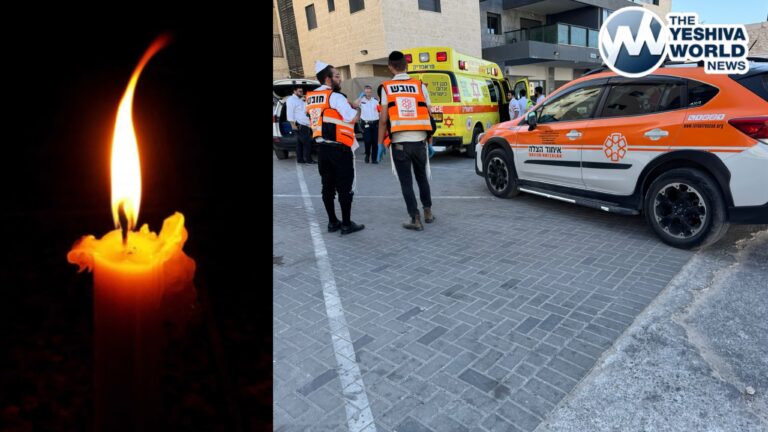
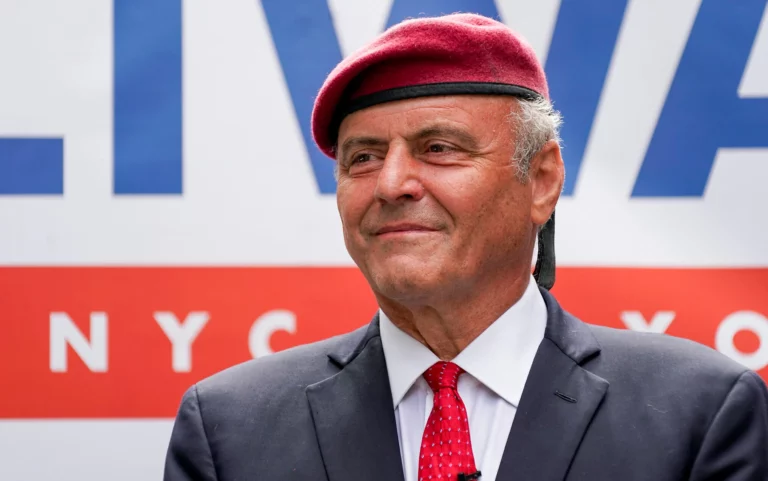
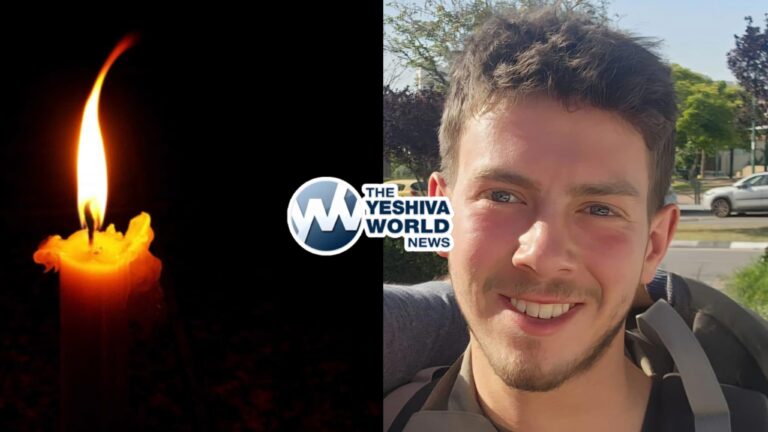
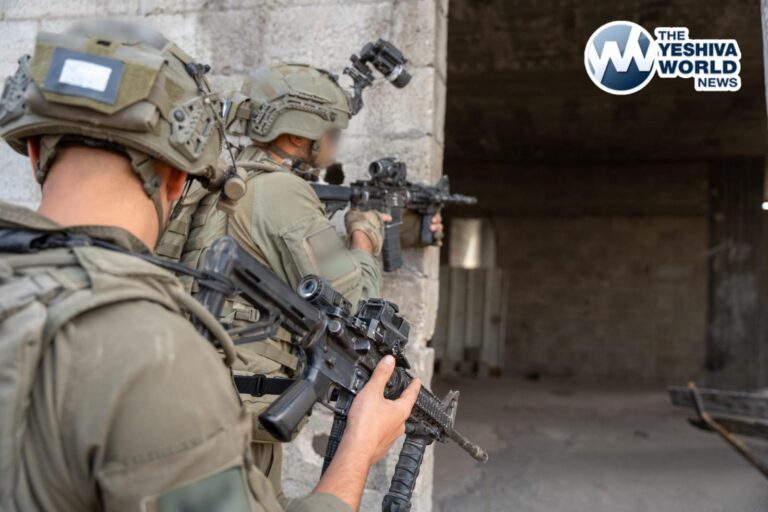
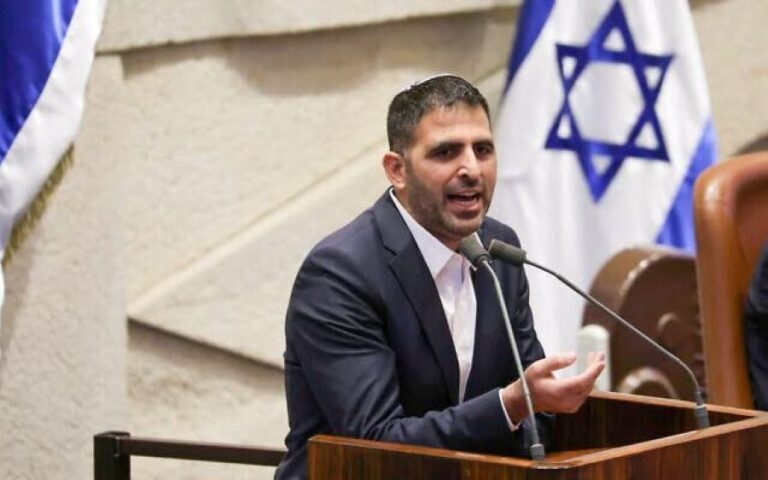
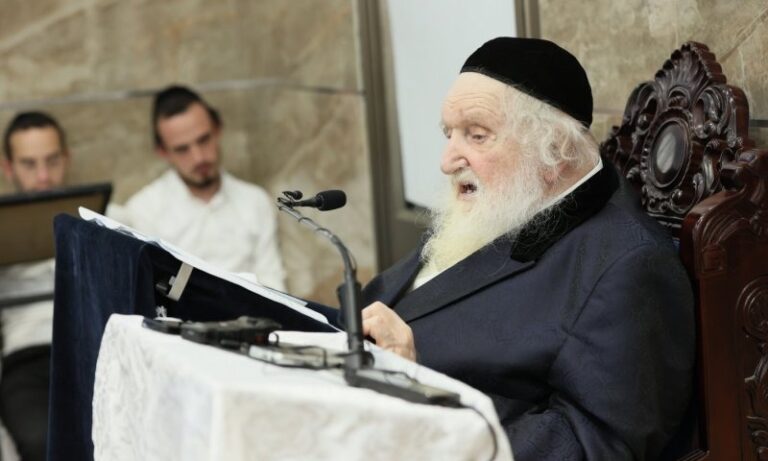
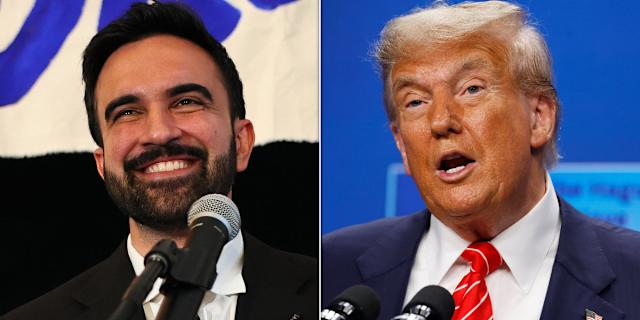
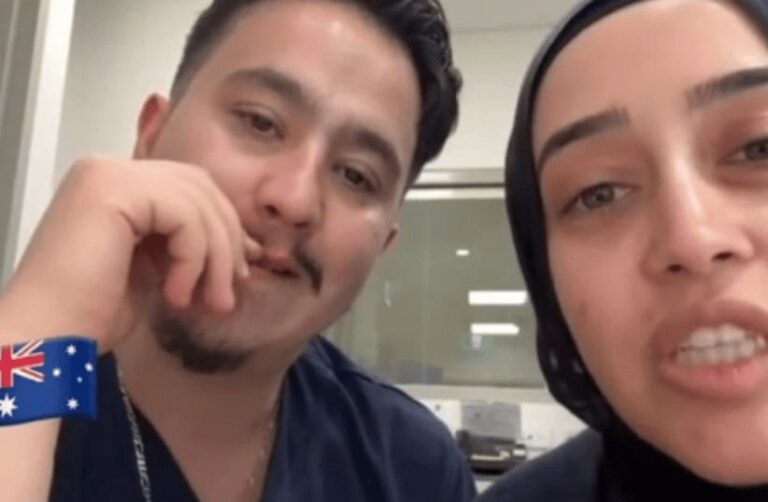

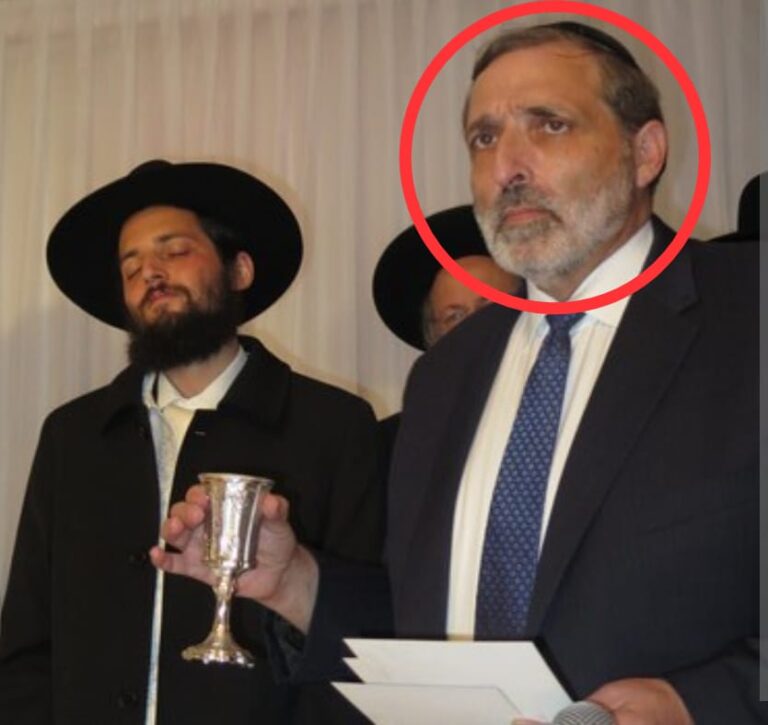
7 Responses
Beautiful Article. Our entire love Sha’ah Tovah Magazine, They have every single week Hot Stuff
R’ Yitzchok was not aware that this was going to be printed in b’shah tovah at all. After it came out in E”Y he put an ad in the Israeli Yated saying so.
part of the testimony of hatzadik reb Elchonon hyd is printed in the intro to koivetz shiurim however the authenticity of this story has been questioned rebetzin Wolbe also a victim of the kovno ghetto has recently written a book about the topic rabbi shimon srgal of new yok also a survivor of kovno ghetto remembers the story its entirety
Interestingly, I was in LA before Purim and I stopped into a yeshiva that is names for him, called Ohr Elchonon Chabad!! Anyone know the history of this?
#4: Yeshiva was started by the Gaon Rav Simcha Wasserman ztsl, a son of Reb Elchonon hyd, and was initially called just Ohr Elchonon. Later it kind of amalgated with Chabad, hence its new name
60 Years have passed and nothing changed. Anti-semitism is only growing and getting worse, all over the world.
Me must start doing Tshuvah and improve our love and caring, in a sincere way, to all Human Beings, Yidden and Non-Yidden. They all are HKB”H’s creations made with the Tzelem Elokim.
Then, we can hope and be Mispalel, that Hashem should never again, instigate the nations with such hatred towards us.
Yedidi Hagaon Hatzadik Reb Yitzchok shlita, is not only a Rosh Kollel, he is also the Baal Mussaf on Rosh Hashana and Yom Kippur in Kollel Chazon Ish for many years. His sweet voice and intense kavonoh have inspired Gedolay Bnei Brak for decades.I am privileged that he personally taught me the heilige nusach of Mussaf Yomim Noroim
Shimon Grama
Lakewood, NJ